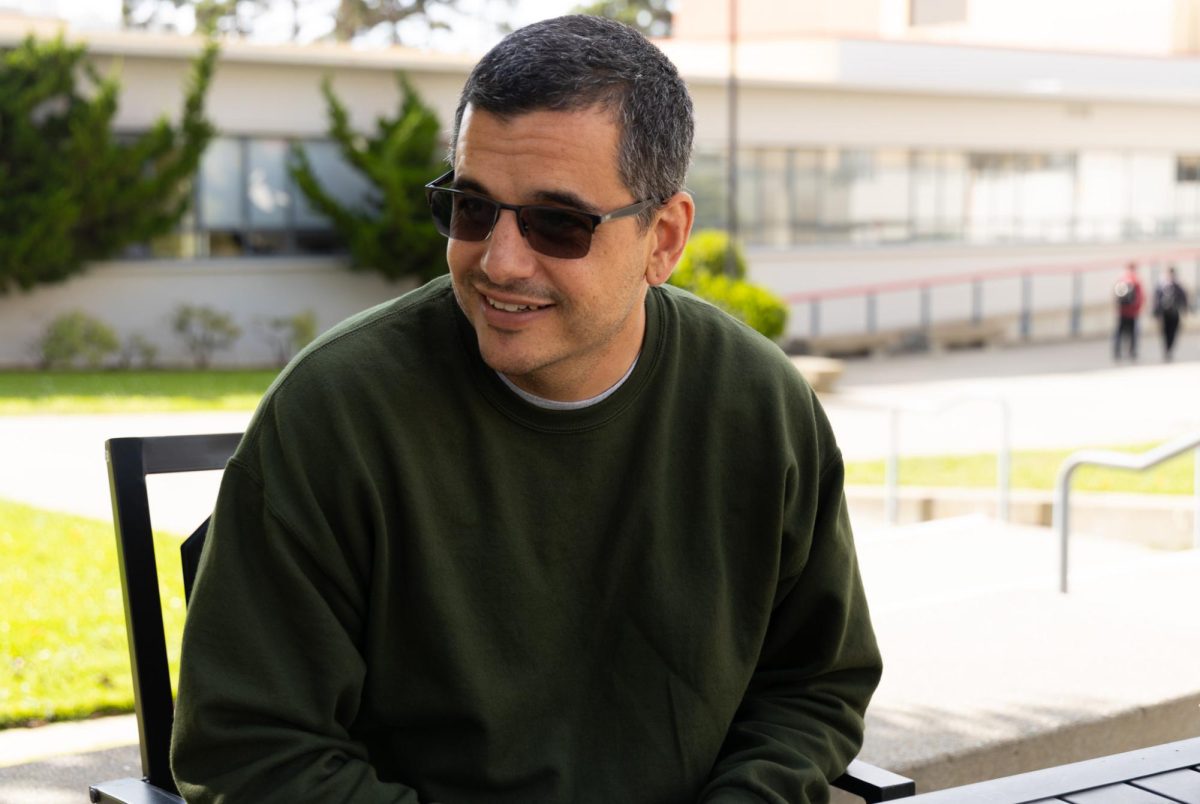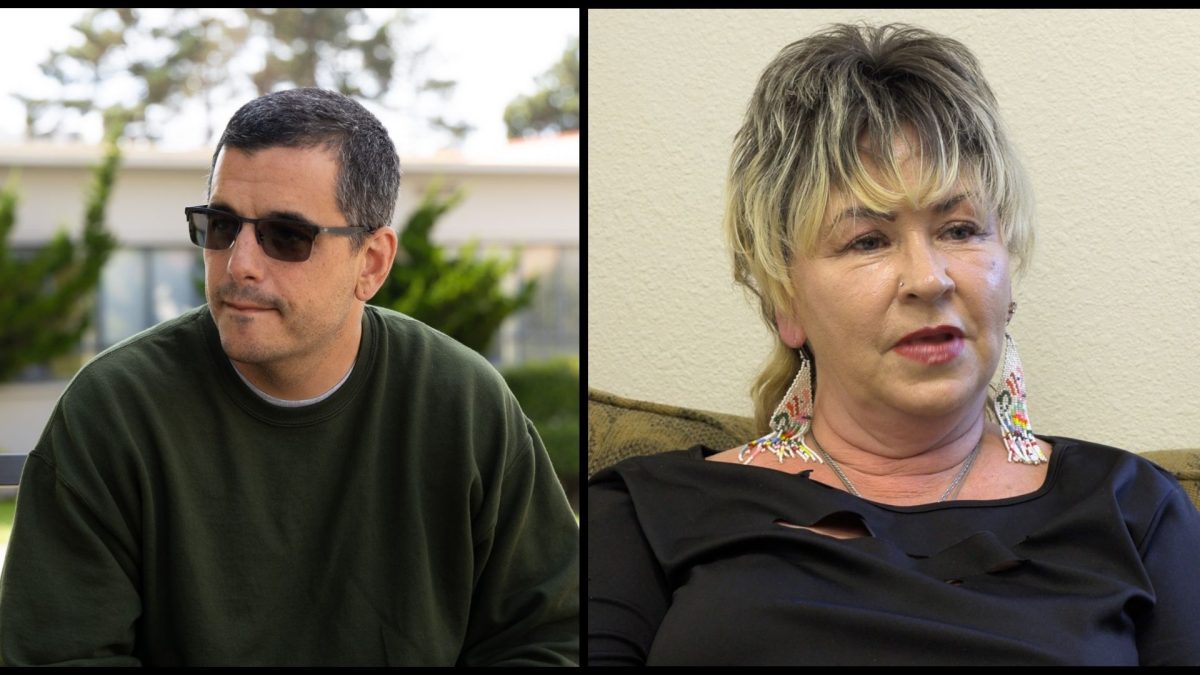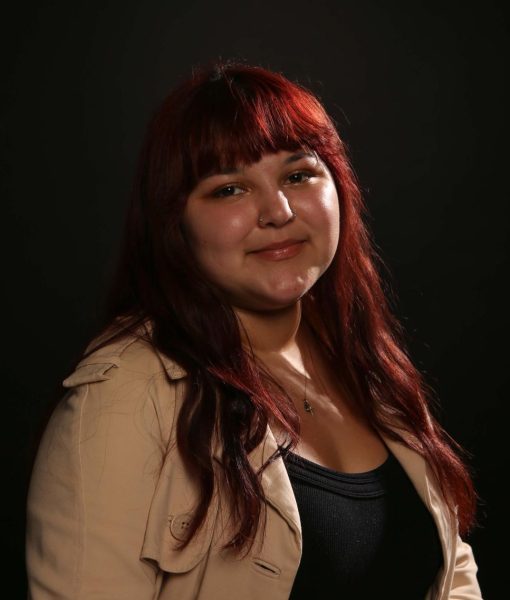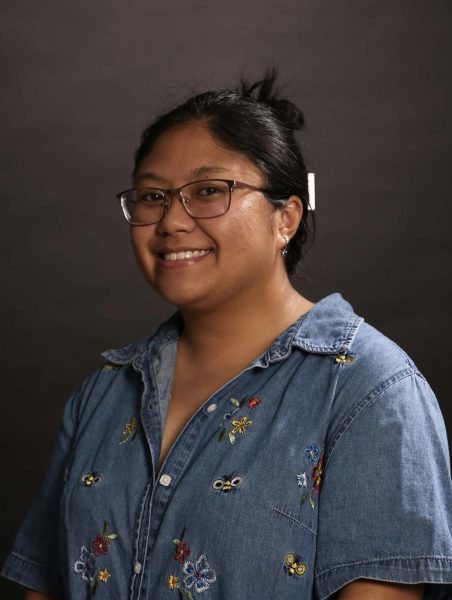When thinking of college, there are expectations of what we think it will bring: connections to the job force, knowledge of something we are passionate about or a community – but sometimes that could be challenging to do. The college experience could be even more daunting when carrying a formerly incarcerated past. The judgment the title might bring is in itself something to endure.
“They’re highly intelligent people who just made a wrong turn or were given a bad situation or just was born in the wrong neighborhood or being in the wrong skin color. That simple,” said Gabriel Singer, who is a 44-year-old Project Rebound student. “A lot of times, it’s just a series of bad choices and then all of a sudden you’re sitting there in the cell and you’re like, ‘How the hell did this happen?’ Then either you climb out or you don’t.”
Singer was arrested for murder in 2007, but he was found guilty of aiding and abetting voluntary manslaughter.
“They were basically trying to find a way to convict somebody for something and I just happened to be the person sitting in that chair,” Singer said.
Singer was sentenced to 21 years. However, he ended up serving 16 years due to getting time cut down by doing milestones.
Milestones are a way that sentence time could be reduced through the completion of rehabilitative and educational programs. Other ways that time could be lowered is by volunteer hours, getting a high school diploma or higher education degree and displaying heroic acts in a life-threatening situation in prison.
However, before Singer went to prison, people who were convicted to violent sentences were not eligible for milestones until Proposition 57 was passed on Nov. 8, 2016.
“You get three weeks off for every class you take but I already started college, so I was like, ‘OK, that’s super cool because I’m already involved with that,’” Singer said. “So I’m gonna keep going because I’m getting milestones for it.”
The system allows people to reduce six months of their time for each degree they get. Incarcerated people could get their GED, associate and bachelor’s degree.
“I got my GED and then got my AA. So then on top of that, you can get 10 days off for every 200+ hours you do in self-help groups,” Singer said. “You can work it off all the way to where you’re getting three months off every year. So that’s what I did.”
Singer learned about Project Rebound while in prison.
John Irwin is the founder of Project Rebound. Irvin was incarcerated after being convicted of a robbery and when he was released, he enrolled at UCLA –– where he earned a degree in sociology and then finished his master’s degree at UC Berkeley. He then got hired at SFSU, where he founded Project Rebound and taught in the sociology department for 26 years.
The program was founded in 1957 and was designed to help formerly incarcerated people receive their education and graduate.
“At the time he started Rebound, he really wanted to open the doors for other individuals following in his footsteps,” said Doris Fendt, a counselor for Project Rebound.
Irwin passed away on Jan. 3, 2010 but his legacy lives on.
Now 56 years later, Project Rebound has expanded to 19 of the 23 California State University campuses.
Project Rebound provides not only a sense of community for incarcerated people but also helps with food and gas vouchers. They host townhouse meetings every Friday to provide resources, whether it is academic or not. Project Rebound meetings are mostly to create a place where all are welcome and can get help with any struggles they might be going through.
It has been 11 months since Singer was released from prison. Since then, he has become a student at SFSU along with teaching a class in the Experimental College.
The Experimental College allows students to teach a course that they are passionate about at SFSU.
“I also wanted to be a professor and so they’re like, ‘Try this opportunity instead of working to get a degree. Why don’t you try it first and see if you like it,’” Singer said. “They set me up with Experimental College and I wrote a curriculum for restorative practices and I’m teaching that this semester.”

Singer wants people to know that sometimes being in prison is not a decision that people make one day. All it takes is a set of multiple bad choices that could result in being locked up, but Project Rebound students are trying to prove their worth at SFSU.
“If you look at the work coming out of the students from Project Rebound, the majority of the time you’ll find out that they’re some of the top students at the school,” Singer said. “That’s not because they’re chasing to rehabilitate themselves because they already did that to get here.”
Fendt supports the idea that people sometimes fall down the wrong path.
“It’s important to have [Project Rebound] because incarceration is still a stigma. Students need a safe place where they know they’re welcome, an environment that is nonjudgmental,” Fendt said. “We understand that students –– the one thing that they cannot change in their life is what brought them to prison. Whatever they’ve been convicted for, but many of our students have changed a lot since then.”
Fendt hopes that other students and people don’t let incarceration define the students in their program.
According to Fendt, students in Project Rebound have gone through incarceration and even when they do get released, there is work that has to be done. Despite their work, they could still be discriminated against and not given a fair chance.
Delina Gonzales, who majors in social work, struggled with imposter syndrome but she has been able to accept herself as a student through Project Rebound. Gonzales started at SFSU in the fall of 2021 but took a semester break. She resumed school in Fall 2022 once classes went back in-person but she experienced imposter syndrome.
Being 42 years old and formerly incarcerated, Gonzales didn’t feel like there were people who she could connect with or understand her.
“I’m gonna start by saying I wanted to leave school,” Gonzales said. “I was feeling like I didn’t belong and I was starting to feel really depressed and I didn’t really feel a sense of community. I went to Project Rebound and I found my community. They gave me the courage and the motivation to stay focused and stay in school and let me know like they’re there for me.”
Gonzales found out about the organization through a friend who was attending SFSU and was part of Project Rebound.
“My education, it means a lot,” Gonzales said. “My education to me means having something that no one could take away from me.”
Gonzales was incarcerated multiple times for failing to appear for court appearances for possession of drugs. Her addiction to drugs kept her from appearing in court.
As a child, Gonzales was surrounded by family and friends who were addicts and access to drugs was easy to get. However, she never thought she would follow the path of her parents.
“I always grew up looking down on substance use because I had parents that were addicts and I was always like, ‘I’ll never do that, I’ll never be like that,’” Gonzales said. “It’s a trip because I ended up becoming what I never wanted to be.”
She fell down that path following the death of a family member.
“My youngest sister passed away when I was 12, so that’s the time that I started using,” Gonzales said. “I kind of lost my faith in my higher power.”
Not only was the drugs used as a coping mechanism, but it was also a way for Gonzales to keep her mind off other things like eating. According to her, it was easier to get drugs than it was to get food.
She had six younger siblings; she preferred that they receive the nourishment to grow rather than herself. Her substitute was drugs.
However, when she got the news that she was pregnant, she made sure to stay clean as she didn’t want her addiction to negatively affect her baby.
Gonzales would also face the death of her mother and her boyfriend at the time, which led her to use again.
Gonzales achieved sobriety in 2014 when she became pregnant with her second child. Next year, she anticipates marking a decade free from drugs.
According to Gonzales, she needed a change in her life and getting an education was that change.
“Yeah, I fell into it but it was also to stay busy because once you have the disease of addiction, it’s always there and is lingering somewhere in the back of your mind or somewhere,” said Gonzales.

Angela Wilson was born and raised in Idaho, where she had an average life until her parents divorced when she was a teenager.
During her adolescent years, Wilson didn’t have someone watching over her since her father was gone and her mother was busy working.
This led her to dabble with alcohol and leave home at 16 years old with a 55-year-old man.
However, she later felt it was not a safe environment for her to be in as she had caught him looking through her underwear drawer.
“He has a look in his eyes and I’ve seen that look,” Wilson said. “I knew that he was going to try to harm me or kill me.”
Fearing for her life while living with him, she then escaped his house after keeping him hostage at gunpoint.
Wilson would then go to the only place she knew.
“I was kind of taken by the Hell’s Angels and so I was taught pretty young how to do fraud,” Wilson said. “I’ve been arrested for that, a little bit of violence, residential burglaries, but mostly fraud.”
Wilson spent around six years in jail on the payment plan. A payment plan involves individuals spending a few days or months in jail, getting released and often reoffending, perpetuating a recurring cycle.
According to the California Department of Corrections and Rehabilitation, California’s most recent recidivism rate from the 2017-2018 fiscal year was 44.65%.
During the time where she was in jail, she would get clean of her addictions. At this time, she was now dabbling into drugs.
Her struggles with addiction would soon affect her relationship with her child.
“We love our children so much, our behaviors don’t indicate that and usually we really suck as parents,” Wilson said. “We’re completely absent, sometimes all the way, or we’re just there in a body. But that’s how deep addiction is, right? That we’ll give up our most precious thing.”
She first heard about Project Rebound through her job at the San Francisco Sheriff’s Department.
“One of my responsibilities is to bring in resources for incarcerated people into the incarcerated setting, so that’s how I first met Jason Bell many years ago. I’ve known about it for a long time,” Wilson said.
Jason Bell has previously served as the director of Project Rebound for 10 years.
However, now Wilson is clean and is helping others while working at the San Francisco Women’s Resource Center.
“People are very unforgiving the minute they know [she was incarcerated]. I can even watch people’s faces change because when you look at me, you don’t know that and if I’m on my best behavior, you won’t know when I open my mouth either,” Wilson said. “But as soon as they find out, you see their faces change, they don’t respect you the way that they did before they knew that information. People can be very dismissive, they’ll feel like you don’t have anything to say or you don’t know anything.”
Project Rebound staff hope to improve the program in the coming years.
According to Fendt, they are helping to advocate for Project Rebound housing. However, she knows that will be a lot of work.
“We don’t necessarily want to put our students in housing with other San Francisco State students because it’s not always safe for our students. Many of our students are still on parole or probation,” Fendt said. “They cannot be around legal substances like alcohol or weed, which is now legal. Some students can do that without breaking the law. But for our students, that could mean being sent back to prison. If you share your apartment with other folks who are drinking or smoking, that’s not a safe environment. We are always dreaming of having Rebound student housing with trauma-informed staff.”
Gonzales, who is soon to receive a social worker degree from SFSU, hopes she will be able to help Project Rebound students with their housing issues in the future.
“I would like to open my own nonprofit organization that (would) help people getting released from prison or jail, go to school with peace of mind,” Gonzales said. “If I were to do this, I would name my organization Ahjae’s which would be dedicated to my older son and the time I missed in his life and it’s an acronym for Angel’s help journeys arrive eventually.”
Fendt first started as a volunteer with Project Rebound where she learned about the prison system. Since she grew up in Germany, she wasn’t familiar with the American system of justice and punishment.
“I didn’t really know much about the justice system or the penal system we should call it, but once I started going into prisons, I realized that there are some systemic forces at work,” Fendt said. “I saw mainly Black and brown people inside of prisons and although I didn’t understand why, it was pretty clear to me that there is something bigger at work. There are systemic structures.”
Fendt found her comfort job at Project Rebound. The program allows her to use her skills to help the community’s needs. Her work at Project Rebound allows her to sleep at night.
Fendt is now a counselor specializing in pre-admission advising, connecting her with students who are planning to pursue higher education.
“I work with what we call pipeline students,” Fendt said. “These may be students who are currently still incarcerated or maybe attending a community college or are working in the community, but have some college units but don’t know how to get in.”
According to Fendt, pipeline students often hear about Project Rebound through word of mouth whether it is from family, friends, volunteers or students. Project Rebound also does outreach efforts with visits to prisons and jails to inform incarcerated people about the program as a possibility after release.
Project Rebound is just one of the few programs that are helping formerly incarcerated people.
In recent years, there have been more programs inside prisons that are offering incarcerated people the opportunity to gain their education while serving time.
Northwestern University had its first class graduate on Nov. 15, marking the first time incarcerated students will receive their bachelor’s degree from a top-ranked university.
Mount Tamalpais College, which is located within San Quentin State Prison, guarantees admission for incarcerated people to any CSU after they go through the program and are released.
If college is not an option, a South Bay program is helping formerly incarcerated people to learn about business.
However, there have also been programs that start a step further to reduce the number of people being incarcerated later in life.
Ishman Anderson, a faculty lecturer in the Department of Criminal Justice Studies, serves as the founder of the nonprofit My Other Brother. The program operates in the Oakland Unified School District and aims to guide youth away from crime and toward education.
“We work with pretty much, Black youth, youth of color from the hood and trying to expose them to college and trade programs opportunities. But we do it in a grassroots cultural framework through mentoring support services overall,” Anderson said.
“That’s pretty much the foundation I’ve been doing on that program while teaching at San Francisco State.”
Before coming to SFSU, Anderson worked at CSU East Bay as an educational opportunity program (EOP) counselor where he founded My Other Brother in 2016.
“When I was working with EOP, our Black males in particular were kind of slipping through the cracks,” Anderson said. “There’s just a lot of issues in general going on in society that cause our Black male youth to want something a little deeper. They wanted to talk about culture and race and issues that they were going through outside of the campus.”
Anderson then moved the program to K-12, where he’s seen the improvement in reducing the contact the youth is having with the streets. He had seen some students end up going to college or trade programs. They also help youth who end up going to juvenile hall and support them while in jail.
Anderson recounts one student from East Oakland who had been involved with gun cases. My Other Brother worked with him while in jail, and helped him get out. The student continued to receive support after he was released to fulfill his education.
“He wound up graduating,” Anderson said. “He got his first 3.0 GPA ever in his life. Now, he’s a full-time student out of Laney Community College.”
According to Anderson, My Other Brother provides love and a sense of community to participants.
Programs like My Other Brother and Project Rebound are serving communities that need extra support but they are also hoping that one day they won’t need to be made.
“To be honest with you, I hope that one day we are not needed anymore,” Fendt said, “That we work ourselves right out of a job, that would be my dream. Sounds a little weird, but that’s really true.”










